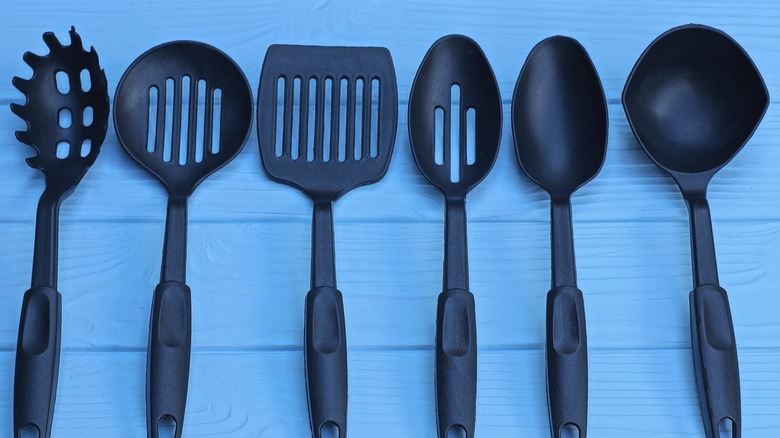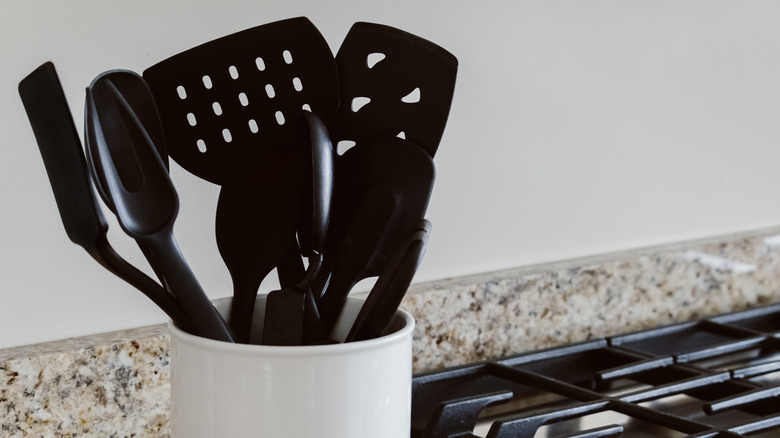The Concerning Problem With Black Plastic Cooking Utensils
We may receive a commission on purchases made from links.
Black plastic cooking utensils are sleek, cost-effective, and easy to use. They're also potentially toxic, according to a new study published in Chemosphere, a scientific journal focusing on environmental chemistry. The study found that several products made of black plastic, from cooking utensils to take-out containers, may contain high levels of brominated flame retardants (BFRs) that are known carcinogens.
In particular, a flame retardant called decabromodiphenyl ether, or decaBDE was found in the black plastics. That flame retardant was commonly added to plastics to prevent them from catching fire, which is especially important for electronics such as televisions, where a fire-proof outer casing is vital in case of overheating. The chemical was banned in the United States and the European Union in the late 2000s, but due to the recycling of electronic waste, it's made its way back into circulation, where it now might be found in our black plastic cooking utensils.
decaBDE, belongs to a class of flame retardants called PBDE, otherwise known as polybrominated diphenyl ethers. A high PBDE level in the blood has been shown to correlate with higher mortality rates from cancer, compared to lower levels. These types of flame retardants are also known to cause developmental toxicity, as well as issues with our nerves, hormones, and reproductive system. It's important to note that the study only examined black plastics. As such, it is unknown at this time if other colors of plastic cooking utensils also contain toxic flame retardants.
How to reduce your exposure to flame retardants
You might be wondering what can be done to reduce your exposure to flame retardants found in black plastics. For one, if you're worried about your black plastic cooking utensils containing toxic flame retardants, you can switch them out for their bamboo, wood, or metal equivalents. These tools are no less effective than plastic and, as an added benefit, are better for the environment. Just remember that each material behaves differently than plastic, and as such, you shouldn't put wooden utensils in the dishwasher.
Nylon cooking utensils are not an effective switch for traditional plastic, either, as black nylon utensils have also been found to contain toxic carcinogens. This is one of the many factors you should consider before using nylon cooking utensils. If you're ordering take-out, try to use reusable, plastic-free packaging. This can be difficult, though, if a restaurant only uses black plastic take-out containers. You might also want to avoid reusable plastic trays at restaurants, as in addition to the possibility of chemicals, they are often contaminated with germs and viruses, including COVID-19 and E. Coli.
Because black plastic is so common, and flame retardants can make their way into the air via dust particles, it's almost impossible to completely avoid exposure. You can take some small steps to reduce the amount of dust in your home's air, though, such as regularly dusting, vacuuming, and mopping. Also, after touching a dusty surface, be sure to thoroughly wash your hands.

